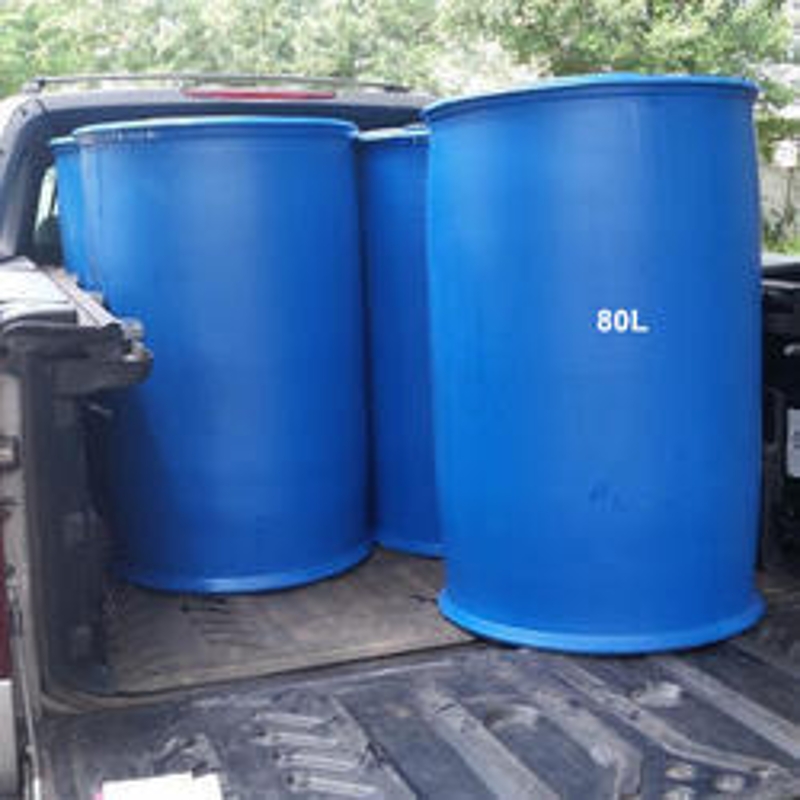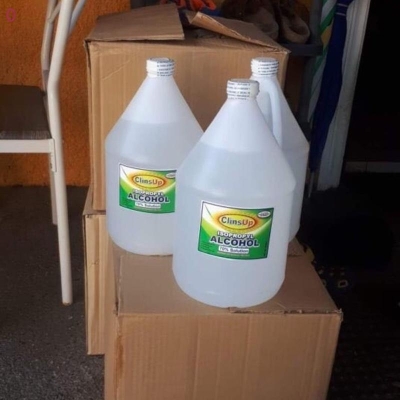-
Categories
-
Pharmaceutical Intermediates
-
Active Pharmaceutical Ingredients
-
Food Additives
- Industrial Coatings
- Agrochemicals
- Dyes and Pigments
- Surfactant
- Flavors and Fragrances
- Chemical Reagents
- Catalyst and Auxiliary
- Natural Products
- Inorganic Chemistry
-
Organic Chemistry
-
Biochemical Engineering
- Analytical Chemistry
-
Cosmetic Ingredient
- Water Treatment Chemical
-
Pharmaceutical Intermediates
Promotion
ECHEMI Mall
Wholesale
Weekly Price
Exhibition
News
-
Trade Service
Brazil, the largest economy in South America, has been actively pursuing trade remedy cases to protect
its domestic industry.
According to statistics from the China Trade Remedies Information Network, since 2013, Brazil has ranked third in the world in the number of original trial cases, second only to the United States and India
.
However, for a long time, the trade remedy cases initiated by Brazil have mainly been anti-dumping cases, and there are few
anti-subsidy cases.
So far, Brazil has launched two countervailing investigations
against China.
The first is Brazil's 2016 anti-subsidy investigation of China's hot-rolled steel plate, and the second is Brazil's 2021 anti-subsidy investigation
of China's aluminum sheet.
It is worth mentioning that in the first anti-subsidy case against China's hot-rolled steel plate, although the then Brazilian Ministry of Industry and Foreign Trade Service finally decided to impose a high countervailing duty on the Chinese enterprises involved for a period of 5 years, due to the active defense of the Chinese side and Brazilian downstream users, and for public interest considerations, the then Brazilian Foreign Trade Commission suspended the collection of countervailing duty measures
.
Background to the establishment of the Brazilian countervailing duty database
The lagging use of countervailing duty investigations in Brazil has aroused strong dissatisfaction
among Brazilian industry.
In January 2018, the Confederation of Brazilian Industry sent a letter to the then Brazilian Ministry of Industry and Foreign Trade Services, the Ministry of Finance and the Commission on Foreign Trade, requesting prompt legislative action to amend the existing Brazilian countervailing duty law (Decree No.
1751 of 1995), which had been significantly improved and expanded in 2013, while countervailing legislation had lagged
behind.
On May 29, 2020, the Confederation of Brazilian Industry released a study
on subsidies in China.
The purpose of the study is to determine what actionable subsidy projects the Chinese government has identified by other WTO members in their countervailing duty investigations, to learn from how other WTO members have responded to China's subsidies that distort international trade, and to help Brazilian industries evaluate the feasibility
of filing countervailing duty investigations against Chinese products in the future 。 It can be seen from the study that the Brazilian domestic industry is obviously dissatisfied with Brazil's existing antivailing duty regulations and the current status of use, believing that the use of current countervailing measures does not match the volume of Brazilian imports from China, and there is also a big
gap between the use of countervailing measures by other WTO members.
The Confederation of Brazilian Industry demanded that the Brazilian government should be more active in initiating countervailing duty investigations against China, and learn from the experience
of antivailing duty investigations of WTO members such as Europe and the United States in the investigation of specific cases.
Under pressure from domestic industry, the Brazilian government has also begun to accelerate its legislation and practice
in the field of countervailing duty in the past two years.
In July 2021, a countervailing duty investigation
was launched into China's aluminum plate.
On October 18, 2021, the Brazilian government published a new countervailing duty law (Decree No.
10839 of 2021) in the Official Gazette, which significantly revised and improved the original Decree No.
1751, which had only 88 articles and expanded the new Decree to 194
.
The new Countervailing Duty Law has greatly improved the transparency, predictability and legal certainty of countervailing duty investigations through the amendment, refinement and expansion of its provisions, so as to facilitate the application, initiation and investigation
of future countervailing duty cases.
On February 14, 2022, the Brazilian Ministry of Economy issued the Countervailing Duty Regulation (SECEX No.
172), which further refines the implementation of the new countervailing law and regulates
some cutting-edge issues in the field of countervailing, such as subsidies for upstream raw materials and subsidies for multinational companies.
Brazil's Ministry of Economy issued a notice on February 15, 2022, establishing a database
on countervailing duty investigations.
This is in line with Brazil's trends and strategies in the field of countervailing duty in recent years, and will certainly have a significant impact on the future response of Chinese enterprises to Brazilian antivailing duty investigations, which deserves China's necessary attention and research
.
Reasons for establishing a countervailing duty database in Brazil
Unlike anti-dumping investigations, countervailing duty is mainly aimed at the subsidy behavior, industrial policy, macroeconomic policy and even the overall economic strategy of the exporting country's government, and is not limited to the products and industries under investigation, but may also be extended to upstream industries
.
This means that when preparing evidence of countervailing duty application, the applicant needs to collect a large number of regulations, notices, announcements and reports of the government of the exporting country to study its relevant subsidy policies and government policies
.
These evidentiary requirements are reflected in the relevant provisions of the
newly enacted Countervailing Duty Regulation (SECEX No.
172).
This burden of proof is undoubtedly a considerable challenge for applicants, especially for domestic industries that are just starting to investigate applications for subsidies
, taking into account factors such as access to information and language barriers.
This is also the purpose of the study on Chinese subsidies produced by the Confederation of Brazilian Industry, in which a specific recommendation is that the Brazilian government and Brazilian applicant enterprises focus on learning from the specific experience and evidence
gathered in countervailing duty cases against China by other WTO members.
The countervailing data database established by the Brazilian Government can now be seen as a response to and concrete implementation
of the above recommendations.
III.
The main elements of the Brazilian countervailing duty database
According to a notice published on the website of Brazil's Ministry of Economy on February 15, 2022, the subsidy database contains summary documents
of subsidies identified by other WTO members in past countervailing duty investigations against five countries (i.
e.
, China, South Korea, the United States, Indonesia and India).
。 The summary document is made for each specific subsidy project, saved in Word form, and summarizes the basic information of this specific subsidy project, including: the name of the specific subsidy project under investigation; the country under investigation; Products that benefit from the specific subsidy program under investigation; applicable laws and regulations; A brief summary of the subsidy (ruling by a foreign investigative body); the type of financial support (according to the classification of subsidies in the WTO Agreement on Subsidies and Countervailing Measures); whether the financial aid is specific; Calculation of subsidy benefits and benchmarks for calculating subsidy benefits; the amount of the subsidy; and the source of the
information collected.
At present, the database includes 716 specific subsidy projects, including 430 subsidy projects involving China, 87 involving South Korea, 10 involving the United States, 26 involving Indonesia and 163 involving India
.
All the above subsidy items are made into an index file in Excel form for easy searching
.
The Brazilian Ministry of Economy also encourages domestic industry and other stakeholders to collect and collate information on subsidies emerging from countervailing duty investigations by other WTO members and send it to the Brazilian Ministry of Economy to keep the database
up to date.
To this end, the Brazilian Ministry of Economy has provided in the notification a form template and an email address
dedicated to collecting information on new subsidy projects.
It is worth noting that the Brazilian Ministry of Economy specifically mentioned in the notice that the information and rulings of specific subsidy items in the database reflect the information collected and rulings made by foreign investigative authorities in specific subsidy cases at that time, but there is no guarantee that these subsidy items will continue to be valid or maintain their main information, so the rulings of foreign investigative agencies on these specific projects will not be binding
on future countervailing duty investigations by the Brazilian Ministry of Economy.
Brazil's frequent countervailing efforts in the past two years show that there is a strong desire on the part of its government and industry to increase the use of
countervailing instruments.
To this end, Chinese government agencies, business associations and exporters should pay close attention to new developments in the field of countervailing duty in Brazil to prevent problems before they occur
.







